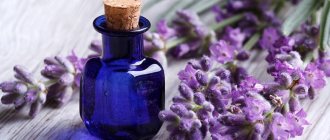www.bigstockphoto.com
During sleep, the body restores strength and internal reserves, rests and relaxes. Without proper sleep, it is impossible to maintain health, youth, a positive attitude, and performance. However, sound and deep sleep is a rare pleasure for many. The reasons are frequent stress, depression, anxiety, heavy workload, and the accelerated pace of modern life. If the sweet embrace of Morpheus is difficult to achieve or sleep is intermittent, shallow, filled with fears, nightmares, you should turn to a method proven over thousands of years - aromatherapy. Many essential oils for sleep are literally irreplaceable, as they gently and unobtrusively relax the nervous system, soothe, and relieve nervousness and irritability. In addition, natural remedies are safe, do not create addiction, and “work” delicately and naturally. Of course, you should choose plant esters that are characterized by the most powerful sedative, relaxing, and antidepressant effects.
The Best Essential Oils for Sleep
Aroma oils not only smell pleasant, but also have a scientifically proven effect on the psycho-emotional sphere:
- reduce anxiety levels;
- smooth out manifestations of nervousness, anxiety, irritability;
- relax the nervous system;
- normalize heart rate and blood pressure;
- restore emotional balance and set the mood for positivity.
The best anti-stress, calming and restorative aromatic oils have proven themselves to be lavender, chamomile, cedar, vetiver, lemon balm, ylang-ylang, and bergamot.
Does it help with insomnia?
Man is the only creature capable of consciously depriving himself of sleep . And so the behavior is destructive, because there is a systematic disruption of sleep and wakefulness, which leads to insomnia.
Lavender is often used to combat it - there are many studies confirming the effectiveness of its use.
One of them is an experiment conducted on 30 volunteers. Lavender flowers were placed in the rooms with the subjects. As a result of the study, it was found that the quality of sleep improved in the majority of volunteers, and the functioning of the nervous system also improved.
At the same time, some subjects reported that they got rid of an apathetic state akin to depression.
Reasons for improved sleep after using the herb
According to the experts who conducted the study described, the aroma of lavender normalizes blood pressure and reduces heart rate .
This leads to the fact that after waking up a person feels cheerful. Somnologist Richard Jolie has other ideas regarding the reason for the effectiveness of lavender.
As he reports, after research it was found that the aroma of the herb reduces a person’s stress level, thereby relaxing him and setting him up for sleep. But lavender culture does not specifically improve sleep.
Another sleep specialist, Christabel Majendi of Naturalmat, suggests that the reason lies in one of the main components of lavender oil - linaol , which has a sedative effect on GABA receptors (the main inhibitory neurotransmitters in the nervous system, responsible for reducing the excitation of nerve cells).
These receptors also play an important role in brain cycles that are involved in sleep processes.
And studies conducted using positron emission tomography have shown that inhaling the aroma of lavender increases brain activity during sleep, but also provides better relaxation, which is necessary for proper rest.
Lavender oil
Fragrant lavender oil is often recommended for meditation in Eastern spiritual practices. It has long been noted that it:
- promotes inner peace and harmony;
- relieves aggression, stress, irritability;
- “drives away” bad thoughts, feelings of envy, resentment;
- helps self-development and self-knowledge;
- reveals creative inclinations;
- enlightens the mind and senses.
From a scientific point of view, this effect is explained by the fact that the complex of bioactive substances of lavender oil normalizes the functions of the nervous and circulatory systems, hormonal levels, and stimulates the production of serotonin (“the hormone of happiness”). The sedative effect of lavender is due, among other things, to valeric acid, which is part of the ester, and is enhanced by the terpene mycene. The effectiveness of lavender oil in relation to mild forms of insomnia has been confirmed in practical studies.
It is noteworthy that lavender oil can provide not only relaxation and calm before bed, but also relieve headaches, clear the air of viruses and germs, and strengthen the immune system.
More details: Lavender Kingdom of Morpheus: Using Lavender Oil for Sleep
How to use lavender oil for sleep disorders
For mild forms of insomnia, nervous tension, overexcitation, stress, and causeless anxiety, aromatherapy gives excellent results. In addition to a diffuser/aroma lamp, the magical properties of lavender ether are revealed through water or massage procedures, cold air inhalations, and rubbing. There are many ways to pamper yourself with relaxing aromatherapy treatments before bed, but you shouldn’t do them all at the same time - it’s better to alternate.
Sweet dream from the first breath
Aromatherapy sessions are carried out immediately before bed, and it is not necessary to use a special device - a diffuser or aroma lamp. You can inhale the aroma through an aroma pendant, stone, sachet or simple cotton napkin. But since lavender alone may not be able to relax the body without its own efforts, procedural aspects and framing are still important. While the aroma pot is being refilled, the required amount of ether is being measured, the lights are dimmed - the body is already tuning in to relaxation and pleasure, so lavender sessions should be a sacred act, a ritual, almost a prayer. If you casually drop a drop of essential oil on a handkerchief and continue to do housework or sit down to watch an action movie, then such aromatherapy will be of no use.
Interesting! Some interesting ideas on how to make an aroma pendant with your own hands
Experts advise to be sure to listen to yourself and decipher the body’s responses to current events. For some, it is more comfortable to lie down in complete darkness, inhaling the aroma and listening to a CD with the sounds of the surf or the morning forest, while for others, a leisurely walk around the house with a drop of ether in the aroma pendant will be much more effective. Any options are acceptable if they give the desired effect - relaxation, calmness, good sleep.
The rules common to all are as follows:
- The session time should last from 5 to 20 minutes, and you should start with a minimum period, gradually increasing it.
- The standard number of drops of oil per room is 15-25 “squares” - 4-7, but less is possible (you should like the aroma and not cause discomfort, headaches, sore eyes, sore throat, etc.). Add 1-3 drops to the aroma pendants.
- If the procedures are carried out every night, then their duration is a week, then a break of 7-14 days is required (during the break, etherol is not used at all, in any way).
- After a week's rest, lavender oil for sleep is used in a repeated weekly course (again starting with the minimum time and dose) - and so on for no more than 2 months. Then you should again refrain from lavender therapy for a month or two. Oils accumulate in the body, so the effect of their action is prolonged.
Tinnitus, agitation, anxiety, headache, instead of peace and falling asleep, signal errors: an overdose of oil or too much time. If you are prone to low blood pressure, lavender is used with extreme caution and in minimal quantities.
On a note. The simplest and most pleasant tool for lavender relaxation is the aroma sachet. It is quite possible to make a pillow filled with dried lavender or other fragrant herbs (mint, lemon balm, hop cones, oregano) with your own hands. If you don’t have free time, buy it in a specialized store. Before going to bed, apply a drop of oil to the sachet, enjoy the aroma for 7-10 minutes, then put it away in the bedside table.
A fragrant bath - and sleep!
A warm bath in itself perfectly relaxes muscles, calms the body and thoughts, but adding an aromatic ether will enhance its effectiveness significantly. For a regular bath, take 5-7 drops of oil, and for a foot bath, 2-3 will be enough. By the way, foot baths for this purpose are no worse than a full bath, since there are many receptors and sensitive areas on the feet. The recommended time for both procedures is 5-15 minutes (the first session - with a minimum time interval, subsequent ones - with a gradual increase). A prerequisite is that the water should not be hot, but warm, comfortable, warming, relaxing. The optimal temperature is 37-38 degrees.
Useful advice! To prevent the oil from spreading like a film over the surface of the water, it is first dissolved in a spoon of honey, a cup of cream, yogurt, or soaked in salt. And only then the finished aroma mixture is stirred in water.
Lavender oil for sleep and relaxation massage
In a massage, lavender oil for sleep is revealed as fully as possible, plus it additionally takes care of the skin. You can rub the accessible local areas of the body (legs, arms, stomach) yourself, and then lie down and relax. The massage mixture is prepared on the basis of a fatty base oil - jojoba, avocado, almond or others. 5-10 drops of ether are enough per tablespoon of transport base; warm the mixture slightly before applying.
A relaxing massage is usually carried out with stroking circular movements, without effort, for at least 15-25 minutes. The key task here is not kneading the muscles, but evenly distributing the aroma mixture over the skin surface for its penetration into deeper layers. Activity after this is contraindicated; on the contrary, you should lie down quietly in warmth and silence.
To improve the quality of sleep, sometimes regular massage of just one area is enough - the feet, solar plexus or temples (in this case, you can limit yourself to 3-5 drops of fragrant ether on the same spoon of base).
Important! The paraphernalia accompanying a relaxation massage will be very useful: muffled music, candles, low light. Do not wash off oils from the body - let them be completely absorbed into the skin.
Lavender babysitter for restless children
Most esters are not recommended for use by children under 3 years of age. However, lavender is one of the few exceptions to the general rule, since it is considered the safest of the essential oils. Starting from 2 weeks of age, the baby’s health and immunity can be “hardened” with lavender oil. Of course - with extreme caution.
Thus, familiarization with the ether is preceded by a stress test, when the oil, diluted with a neutral base in a ratio of 1:6, is applied to the area of the skin in the area of the elbow. Lack of reaction (in the form of irritation, itching, redness) is a permissive signal. However, children's dosages are an order of magnitude lower than adults, and for children's health, contact of pure, diluted oil with skin or mucous membranes is critically unacceptable.
Examples of using lavender oil for children who have difficulty falling asleep or restless sleep:
- Add 1 drop of oil to the bath when bathing (no more than one drop for the entire bath and be sure to thoroughly dissolve it in a glass of milk or cream).
- Massage the baby's skin with a lavender aroma mixture: 1 drop of lavender per 30 ml of baby cream or lotion (you can take almond or grape oil). Rubbing should be done half an hour before bedtime. Store the remaining mixture in a closed, cool place, and be sure to warm it up before next use.
- Place a handkerchief with half a drop of ether near the head of the crib for 5-10 minutes.
- Add 2 drops of oil when rinsing baby bedding.
For your information! The use of aroma lamps in children's rooms in the first years of a child's life is not recommended! It is better to replace them with other specialized devices (aroma stone, aroma pendant), cold inhalations or aerating the air in the nursery with an aqueous solution of oil using a spray bottle.
Chamomile essential
In aromatherapy, this modest flower is nicknamed the keeper of dreams for its relaxing effect on the central nervous system. In addition, this is a “female” oil, invaluable for menopausal conditions, menstrual syndrome and neuroses associated with hormone imbalance.
Aromatizing the bedroom before resting (3-5 drops of chamomile oil in an aroma lamp) for 15-20 minutes will ensure deeper and longer sleep, completely restoring strength and vigor in the morning. This scent is good before important events and making difficult decisions, as it helps to discard unnecessary things, focus on the main thing, see prospects more clearly, and concentrate internal reserves.
Instead of an aroma lamp, chamomile can be used as part of a relaxing bath before bed: the water is not hot (37-39 degrees), soak the salt with 5-7 drops of sleep oil, dissolve in water, time - 15 minutes. In addition to relaxation, chamomile will cleanse and tone the skin, making it soft and silky.
If you don’t really like the green-herbaceous chamomile scent as a solo scent, it can be combined with bergamot, rose, lavender, and orange.
Chamomile scent for sleep
Chamomile. Although people often know chamomile for its presence in organic teas, this aroma is also available to aromatherapy patients. Chamomile works as a mild sedative and relieves the pain of many types of stomach diseases.
Chamomile may also help other aromatherapy patients with sleep. Chamomile aromatherapy is popular for helping patients relieve anger, irritability, and relieve nervous tension.
Chamomile is available as essential oils and aromatherapy diffusers. For sleep-focused patients, chamomile pillow inserts are best suited.
Vetiver oil
Translated from Hindi, vetiver ester means "oil of calm", which emphasizes its calming properties. In addition, vetiver relieves muscle tension and pain, activates metabolic processes, and has a beneficial effect on the musculoskeletal system. Therefore, a warm 20-minute bath with a few drops of vetiver oil (no more than 4) is “just what the doctor ordered” after a stressful, difficult day at work. A relaxing massage shortly before bed will also give an excellent result: 5 drops of vetiver per 15 ml of massage cream or any base oil.
By the way, when massaged with essential oil, its components enter the bloodstream within 5 minutes and reach maximum concentration after 20. After an hour and a half, the active essential ingredients are completely eliminated from the body. It would be a good idea to take this information into account when choosing the time of the procedure.
Vetiver oil has a complex effect on the emotional sphere:
- stabilizes and calms;
- eliminates depressive symptoms;
- helps cope with asthenic syndrome, panic attacks, uncertainty, depression;
- creates optimistic attitudes;
- improves mood;
- creates a positive attitude towards the environment.
Insomnia, chronic fatigue, depression, migraines, and self-doubt can be relieved if you wear an aroma pendant with a couple of drops of vetiver ether. The aroma of vetiver is considered “masculine”, so if you want to smooth out its pronounced woody-smoky notes, you can prepare an aroma mixture: vetiver (2 drops), tangerine (3 drops), rose (1 drop). This anti-stress blend is used in aroma stones, sachets, medallions, cold inhalations, and aroma lamps.
Effective aroma oils
The most effective oils for complex therapy of sleep disorders are essential oils of neroli, chamomile and lavender. They not only have the necessary calming properties, but also allow you to harmonize nervous activity, contribute to the stabilization of the emotional background, a productive way out of stress and relieve anxiety, irritation, and obsessive states. Giving a feeling of comfort, they help cope with problems that result in insomnia.
- If the cause of sleep disturbances is too much responsibility or unpleasant events, then benzoin will be the optimal aroma oil.
- Sleep disturbances caused by depressive disorders can be helped by bergamot, and if you are too tired, it is better to use sage (it should not be used with alcohol!).
- If you want to create positive change, the calming and warming effects of marjoram will be a real healing experience.
- Aroma oils of ylang-ylang, sandalwood, and juniper will also help cope with sleep disorders.
- For chronic insomnia, severe and prolonged sleep disorders, you can use oils of rosemary, lemon balm, orange, frankincense, fennel, laurel, basil, juniper, rose, sandalwood, cypress, mint, neroli in any combination.
- If you suffer from nightmares, scent the room with rose oil.
- Neroli, anise, cypress, lavender, wormwood, juniper, and fir will help eliminate irritability before bed.
- Feelings of loneliness, misunderstanding, and inferiority will be carried away by the smells of mint, laurel and fennel.
- If you are plagued by anxiety and worry, add coriander and laurel to essential oils.
Melissa oil
The use of lemon balm oil for sleep is indicated in cases where it is difficult to achieve complete relaxation. It normalizes heart rate and, in general, the functions of the cardiovascular and nervous systems, has a beneficial effect on brain function, and relieves emotional and physical stress. To relieve headaches and reduce tension, just drop one drop of ether on each temple and massage lightly for 5-10 minutes (if you are not allergic to this oil). For the same purpose, apply a cold compress to the forehead - a napkin soaked in water with a couple of drops of essential oil.
Melissa is one of the best adaptogens, so it is used for changes in life, important changes, and difficult situations. A fresh aroma activates internal reserves, strengthens defense mechanisms, smoothes out mood swings, and sets the mood for positivity.
Adding lemon balm oil to shower gels and shampoos (3-5 drops for every 15 ml of product) will help you relax after training, sports games, and swimming. You can also flavor tea (strictly if you are not allergic to lemon balm): 3 drops of oil per 200 g of herbal or tea mixture.
What is the benefit
Sleep problems occur periodically in every adult, and even in children. But taking sedatives and hypnotics without a doctor’s prescription is dangerous.
Soothing essential oils are a safe method for eliminating sleep disorders, suitable for pregnant and lactating women and children. Aromatherapy sessions do not require a doctor's permission.
Inhaling aromas causes strong emotional reactions and has a beneficial effect on brain function. Most aromatic oils have a complex effect - they calm, normalize the functioning of the nervous system, clean and aromatize the air in the room.
Some remedies help strengthen the immune system, which often suffers with insomnia.
Ylang-ylang oil
In Ayurveda, ylang-ylang ether is believed to bring joy and harmony between the mind and emotions. This well-known aphrodisiac is also good for normalizing sleep disorders of various kinds, as it has a calming effect on the nervous system, regulates the release of adrenaline, lowers muscle tone, regulates heart rate and breathing, and effectively relaxes.
If your sleep is interrupted, you often wake up at night and have difficulty falling asleep again, try aromatizing the air in the bedroom with a spray bottle with a few drops of ylang-ylang before resting, or placing an aroma with this scent at your head. A good mixture of ylang-ylang with lemongrass and lavender (2:2:3), it is used for atomizers and aroma lamps.
Other effective ways to get healthy sleep back
Essential oils are used to improve adult sleep in combination with other methods. Aroma baths or massages will not work if the sleep pattern is disturbed, the person is subject to constant stress, or leads an unhealthy lifestyle. If you suffer from insomnia, nightmares, sleepwalking and other disorders, use the following recommendations:
- Eat 2-3 hours before bedtime; dinner should be light: salad, cottage cheese, yogurt.
- Carry out wet cleaning in the apartment more often, sleep on clean natural bed linen.
- Ventilate the bedroom, a comfortable temperature for sleeping is 18-22°C.
- Don't expose yourself to stress, don't watch dramas or horror movies before bed.
- If you are taking any medications, ask your doctor about side effects. Some medications cause insomnia. Do not overuse sedatives.
- Limit your alcohol intake.
- Walk outdoors more often.
If you have been using one type of oil for medicinal purposes for a long time, change it to a new one or add a different scent to it. For chronic insomnia, depression, and neurosis, aromatherapy helps only in combination with drug treatment. Therefore, be sure to consult a psychotherapist or sleep specialist.
Most often, sleep disturbance occurs due to physical and emotional stress. In order to fully rest, you need to be able to relax, gradually preparing your body and mind for sleep. For these purposes, evening aromatherapy is practiced. Essential oils have a beneficial effect on the nervous system, so they are even used to calm babies.
Cedar oil
Low energy and depression are often seasonal, appearing in late autumn and on the eve of spring. At the same time, the body is attacked by viruses and infections, colds and exacerbations of chronic ailments lie in wait. There is an essential oil that “kills” two birds with one stone – it normalizes sleep and the emotional sphere, and protects the immune system from dangerous microorganisms. This miracle cure is cedar oil.
Everyone has heard about its antiseptic properties and benefits for the respiratory system, but the fact that it is a good sedative and anti-stress drug is not so widely known. However, the beneficial effects of ether on the nervous system, brain and psycho-emotional state are undeniable. The fresh, woody aroma of cedar oil for sleep is good for use in an aromatherapy aroma, and this procedure, carried out in the bedroom before rest, will help restore the body's immune forces.
Cold inhalations with cedar ether are useful both at home and at work: a couple of drops on a handkerchief or napkin, inhale for several minutes throughout the day.
What oils are good for sleep?
Frankincense essential oil is considered second only to lavender, but this does not detract from its relaxing qualities. It is considered a good remedy against stress and depression. The smell of incense helps to create inner peace and restore spiritual harmony.
Rose essential oil has a calming power and is good for emotional women. Experts recommend using it for panic attacks, during grief, or to relieve anxiety.
Vetiver essential oil has a tart, sweet aroma that is ideal for relaxation. The smell has a positive effect on the human nervous system, reduces the risk of a panic attack and normalizes biorhythms.
Another remedy for improving sleep is ylang-ylang. Suitable for both children and adults. Moderate sedative properties have a calming effect on a person, drive away nighttime anxieties and provide quality sleep.
In addition to these oils, there are others, but in most cases experts recommend the above remedies.
Essential oils for sleep should be selected based on the cause of insomnia.
To improve the quality of sleep and relaxation after a busy day, you need to use the following ingredients:
- ylang-ylang, cedar, myrrh, orange, mandarin, cypress or juniper will ensure quick sleep;
- lavender, rose or chamomile will help ward off anxiety during sleep;
- Frankincense, vetiver or vanilla relieve tension.
Bergamot oil
A strong natural antidepressant, bergamot oil is good primarily for eliminating symptoms such as constant fatigue, lack of interest in life, depression and despondency. Once in the body, volatile compounds of bergamot activate the release of dopamine and serotonin, which are “responsible” for the feeling of pleasure, calmness, and confidence.
Aromatherapy with bergamot looks like this: in the morning - a shower with gel and shampoo enriched with this ester (2-3 drops per single portion of the product), throughout the day - periodic cold inhalations (aroma sachet or medallion) and tea flavored with bergamot, and in the evening - a warm bath and aromatherapy session (3-5 drops in aroma lamp). You can supplement the therapy with aroma combing: apply a few drops to the teeth of a wooden comb, comb your hair for about five minutes in different directions. In the morning, this procedure will provide your hair with additional protection from damage and loss, and at night it will relax the body, strengthen the hair, make it stronger and thicker.
How to choose essential oils for a child?
The modern market offers many types and options of esters. However, you should approach the choice of aromatic medicine for a child very carefully, giving preference only to a well-known, trusted manufacturer.
It is best to buy ethers in pharmacies or specialized stores. The preparations must be in glass containers with dispensers, have a valid expiration date and a completely natural composition.
It is advisable to pay attention to the production method: it is best if the oil is obtained by distillation or pressing (this guarantees a high level of purification).
Another important point is the price. A high-quality, natural product cannot be cheap. The ether, which is sold for pennies, is most likely unnatural, which means it is more likely to cause an allergic reaction and will not bring the desired result.
Essential oils for children
Increased activity and excitability, anxiety before performances or tests at school sometimes cause sleep disorders in children. What essential oils can be used for aromatherapy for children? First of all – citrus fruits. Tangerine, lemon, orange will muffle anxiety, calm you down, and give you confidence. For better sleep, the bedroom is scented with lavender, lemon balm, bergamot (the number of drops is half that for adults). It makes sense to add 2 drops of chamomile and 1 drop of lavender oils to the bath. The same blend is suitable for a massage procedure.
Contraindications for the use of essential oils include acute and chronic illnesses, individual sensitivity, and uncertainty about the high quality of the oil.
The safest esters for children are esters of lavender, rose, chamomile, and sandalwood. They relax, calm, promote balance and peace.
Essential oils applied to the skin help you sleep
The second way to use essential oils for insomnia is to apply them directly to the skin.
Apply 1-2 drops of your chosen essential oil to your temples or wrists. Blood actively circulates in these places, and the temperature is slightly higher than in other points of the body. Therefore, the aroma of the oils will spread quickly and you will quickly feel the results.
Instead of applying scented oils directly to your skin, you can try applying a few drops of oil to a piece of cotton wool. It can be placed under the pillow, or glued to the palm with an adhesive plaster.
How to use
Aroma lamp, aroma stone
Aromatizing a room using an aroma lamp or diffuser is the most traditional way of using essential oils. The standard rules for the procedure are simple: pour water into the lamp, add a few drops of oil (or aroma mixture), light a candle and enjoy the fragrance for 15-20 minutes. Of course, when using oil for sleep after an aroma session, activity, physical and emotional stress are excluded - it is better to do it immediately before going to bed.
An aroma stone affects a smaller space than an aroma lamp, so the algorithm for its use is slightly different: drop a few drops of ether on the stone and place it on the bedside table. There is no need to control the time - the ether itself will evaporate after an hour or two. The aroma stone produces a weaker, almost inaudible odor, so the effect may not be immediately noticeable.
Important! It is recommended to use one scent or mixture for no longer than 2 weeks, then you should change the oil to another.
Aromatic baths
After the aroma bath they do not wash or even dry themselves, so it is better to take a hygienic shower before it. And to make an aromatherapy bath, you need to first mix the selected oil or aroma composition with an emulsifier:
- honey;
- cream (yogurt, kefir);
- red wine;
- soak in salt (sea or regular table salt).
The main condition is a comfortable temperature: a bath that is too hot will not relax you, but on the contrary, it will excite you. Aromatic baths can be taken daily, every other day or once a week - as desired.
Massage with essential oils
Regular massage with oil (and even self-massage) gives miraculous results: muscles relax, thoughts and worries “evaporate” from the head, emotions are replaced by peace and tranquility. Adding essential oils to massage products greatly enhances the effect and promotes the rapid onset of deep and restful sleep.
Massage, in the absence of a specialist, can be done independently, kneading tense muscles, joints, head and face. But foot massage deserves special attention, because thousands of nerve endings connected to all organs and systems are concentrated there. It wouldn’t hurt to take a hot foot bath first to steam and relax your feet (5-6 drops of any relaxing oil in the water, time 10-15 minutes). Then walk on the massage mat or knead your feet with your hands: first, light stroking movements, then massaging in a circular motion with pressing on some points, then reducing the pressure in the reverse order.
Homemade recipe for a relaxing massage mixture:
- 15 ml of base (almond, apricot, peach or grape seed oil);
- 2-3 ml wheat germ oil;
- 3 drops each of ylang-ylang, chamomile and lavender esters.
It is better to store the mixture in the refrigerator and heat it before use.
Types of oils and methods of their use
Esters of various herbs and plants are used for aromatherapy sessions, massage, and water treatments to normalize sleep.
Rules of application
| Type of procedure | Rules |
| Water treatments | Add 5-6 drops of ether to the water; for children and the elderly - 2 times less. Duration – 5-20 minutes. Water temperature is 34-36 degrees. |
| Massage | If you have severe nervous tension or fatigue, do sessions 2-3 times a day, always before bed. Add 5 drops of aroma oil to 15 ml of basic massage product. After the massage, lie down for at least half an hour. |
| Inhalations | The cold method is to apply 2-3 drops of essential oil onto a towel or paper napkin. Hot method - add 7-10 drops of aroma oil to water at a temperature of 50 degrees. Breathe in pairs for 10-12 minutes. |
| Air aromatization | Ventilate the room for 20-30 minutes. You can use a diffuser, a lamp, or place a sachet or aroma stone near your bed. |
In order for esters to dissolve well in water, they must first be mixed with salt, shower gel, cream or milk.
When applied topically, 2-5 drops of aroma oil should be mixed with 15-20 ml of olive, almond, jojoba, and avocado oils.
What aromatic oils calm the nervous system:
- lavender;
- sage and bergamot;
- incense, juniper, sandalwood;
- rose;
- vetiver;
- ylang-ylang;
- orange, tangerine;
- lemon balm, mint;
- fir, cypress.
To improve sleep in children, you can use ether of chamomile, dill, and lavender.
Lavender
Lavender for sleep is the best remedy, suitable for children over 2 weeks old. The ether has a pronounced relaxing and calming effect, bringing the inner world into a state of balance.
With regular aromatherapy sessions, anxiety, panic attacks, irritability, and nervous agitation disappear.
How to use lavender aroma oil for sleep:
- A mixture for relaxation and stress relief. Add 3 drops of lavender essential oil to 5 ml of coconut or almond oil. Apply the mixture to the neck along the hairline, on the wrist, rub in with light massage movements. This composition can be used for evening foot baths.
- Cream. Mix 5 drops each of lavender and frankincense oil, add 5 ml organic coconut and 3 ml olive oil. Melt the coconut oil product - place the container in water at a temperature of 40-45 degrees. Mix all ingredients. Apply the mixture before bed to the temples, forehead, neck, and feet.
- Pillow scenting. Lavender essential oil does not leave a greasy residue, so you can simply apply a few drops to your pillow.
- Ingestion. If there is no allergy, apply 3-5 drops of ether to a piece of refined sugar, slowly dissolve until completely dissolved. Take one hour before bedtime.
Inhaling the aroma of lavender restores heart rate and quickly reduces anxiety and stress levels.
Ylang-ylang
It has a calming effect and helps cope with anxiety and night terrors. But it is better to mix it with pine or citrus esters to slightly reduce the harshness of the aroma.
A good mixture for normalizing sleep and psycho-emotional state is 2 parts each of ylang-ylang and lemongrass, 3 parts of lavender.
Use the composition for lamps and spray bottles.
Rose
Rose oil is ideal for women. The aroma helps to cope with anxiety, panic attacks, and excessive emotionality during PMS.
Options for air combinations
| Components (in drops) | |
| 1 | Rose and tangerine – 1, sandalwood – 3. |
| 2 | Sage, chamomile – 2, rose – 1. |
| 3 | In equal parts rose, verbena, grapefruit. |
Incense
Frankincense is an aroma oil for insomnia, anxiety and depression. The oil creates a relaxing atmosphere that brings balance to the mind and soul.
Relaxing and Blend Options
| Components (in drops) | |
| 1 | Bergamot – 3, incense and geranium – 1 each. |
| 2 | Lavender – 3, chamomile – 2, incense, sage – 1. |
| 3 | 2 each of incense and lemongrass. |
To carry out a relaxing massage, you need to prepare a mixture of equal amounts of frankincense and bergamot oil.
Precautions when using aromatherapy for children
Despite the natural composition and beneficial properties of esters, if used incorrectly, they can be extremely dangerous for humans, especially small ones. That is why bottles should always be tightly closed and kept out of the reach of children.
In children's aromatherapy it is strictly prohibited:
- apply ethers internally;
- allow direct contact of the drug with the child’s skin (during massages, aromatic materials are mixed with a base oil);
- use more oil than is appropriate for the child’s age;
- do inhalations with ethers in nebulizers.
As for traditional inhalations with essential oils, they can only be used by children of high school age, after consultation with an aromatherapist. In preschoolers, such procedures are likely to provoke bronchospasm and even lead to suffocation.
Before using this or that ether, you need to make sure that its components will not cause allergies in your baby. To do this, on the eve of the aromatherapy procedure, you should let the child smell a piece of fabric sprinkled with the tested ether several times a day. If the child’s behavior and condition have not changed during the day, the test will pass. But if there is the slightest reaction to ether, it should not be used categorically. Here are the signs of drug intolerance:
- headache;
- dizziness;
- nausea;
- dry mouth;
- cough;
- watery eyes and redness of the eyes;
- skin redness, rash, itching.
Before the aroma massage session, the product is also tested: a few drops of oil (base + ether) should be applied to the child’s hand and observed for several hours to observe the skin’s reaction. If there are no changes, massage is allowed.
The dosage should be observed as accurately as possible. In a situation with a small child, it is better to “not add enough” fragrant medicine than to overdo it. An overdose is fraught with serious changes in the baby’s behavior and well-being: overexcitement, headaches, hysteria, poor sleep.
Another important rule when treating children is gradualism. The first aroma sessions should not exceed one and a half minutes (for infants - 30 seconds). Subsequently, the time increases by 30 seconds per day, reaching 5-10 minutes - depending on the age of the child.










